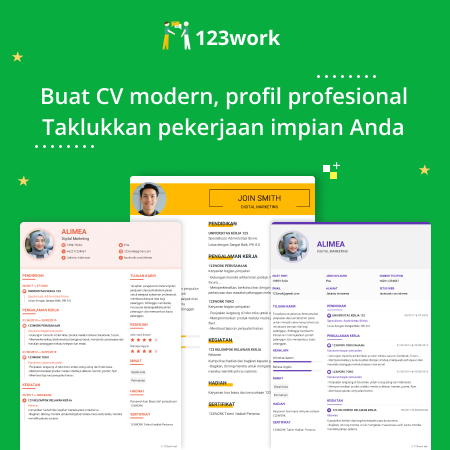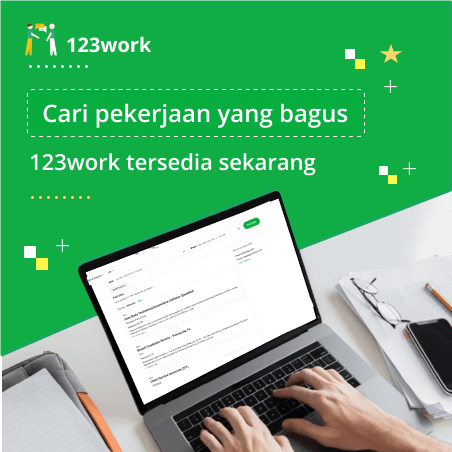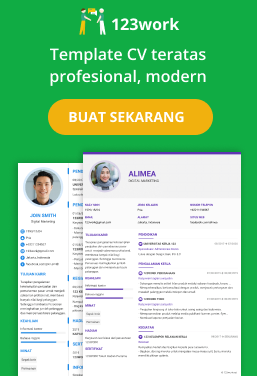UNDP is committed to achieving workforce diversity in terms of gender, nationality and culture. Individuals from minority groups, indigenous groups and persons with disabilities are equally encouraged to apply. All applications will be treated with the strictest confidence.
UNDP does not tolerate sexual exploitation and abuse, any kind of harassment, including sexual harassment, and discrimination. All selected candidates will, therefore, undergo rigorous reference and background checks.
UNDP is the leading United Nations organization fighting to end the injustice of poverty, inequality, and climate change. Working with our broad network of experts and partners in 170 countries, we help nations to build integrated, lasting solutions for people and planet. Learn more at undp.org or follow at @UNDP.
Indonesia has demonstrated its preparedness in rolling-out COVID19 vaccination program and take an active global role from there. At that time, MoH adopt “One Health Data” approach in monitoring and digitizing the vaccination process by working synergistically with the Ministry of Communication and Information in registration phase (PEDULI LINDUNGI system), UNDP in supply-chain management of vaccines and related logistics (SMILE system) as well as with BPJS/the National Social Security Body in individual registry of vaccinated people (P-CARE system). As per 01 February 2023, the MoH has been managing data of COVID19 vaccine distribution of 454,4 million doses from provincial level down to 12,000 health facilities. Given the significant achievements from COVID19 vaccination, Directorate of Immunization built similar integrated approach for routine immunization by synergizing SMILE (Sistem Monitoring Imunisasi dan Logistik Elektronik) system and ASIK ( (Aplikasi Sehat Indonesiaku) system (a P-CARE mirroring system, but now developed by the MoH). Directorate General of Communicable Diseases Prevention and Control, Directorate of Immunization, Directorate General of Pharmaceutical and Medical Devices, Directorate of Pharmaceutical Management and Services, Data Center and Information, Digital Transformation Office as well as UNDP become more closely hand-in-hand in eliminating fragmentation by improving more integrated data visibility between logistics and beneficiaries of immunization program. UNDP has become more mature in assisting the MoH with SMILE system to plan the distribution, anticipate stock out, minimize expired vaccines due to neglection, and track the disposed vaccines at all levels transparently and real-time. Apart from immunization, there are still potential threats to Indonesia on health logistics insufficiency and inequity across the region. Medical and laboratory logistics is important to ensure that people receive the best possible early detection and care diseases in a timely manner. Therefore, supply-chain management for non-vaccine health commodities including laboratory supplies are still in the MoH health transformation agenda.
In late 2022, the MoH rolls out end-to-end supply chain management system where SMILE take part in monitoring the distribution, consumption, to disposal from manufacturer until the last mile within the chain. The Directorate of Pharmaceutical Management and Services decided to start the innovation of digitizing end to end supply-chain management in Aids, Tuberculosis, Malaria (ATM ) p rograms, then leverage it to all programs across public and private health facilities. The expansion of SMILE will likely strengthen governance, capacity and efficiencies of procurement and management of health-related commodities.
The program will focus on support to the Ministry of Health to address challenges in supply-chain management of medical commodities with four Outcomes and four Outputs, as follows:
Outcomes
1. Optimized distribution efficiency, projection and planning improved cost savings and enhanced reliability of the national procurement and supply chain system for HIV, malaria and TB health commodities across all tiers of public and private healthcare sectors.
2. Improved availability, access and coverage of essential drugs and diagnostics at community health center, sustaining capacity of health and laboratory facilities to deliver TB, malaria and HIV prevention and treatment programs,
3. Improved accountability, transparency and integrity of the health supply chain, and empowering frontline health workers with more control and oversight over the prevention, treatment, and care services they provide.
4. Efficient processes and enabling environment to regulate and manage healthcare and laboratory waste, towards a more sustainable and resilient human and environmental health system.
Outputs
1. Introduction and scale up of the SMILE digital technology, a cloud-based electronic logistics management information system (e-LMIS), for tracking health and laboratory commodities, as well as healthcare waste, across malaria, TB and HIV programs.
2. Comprehensive online dashboard for real-time visualization, data analytics and forecasting of key operational information and performance indicators, to inform planning and decision making for supply chain and healthcare waste management at all levels.
3. Strengthened institutional and workforce capacities on the use of the SMILE dashboards and application in health centers and health services, laboratories and across the healthcare waste chain network; and expanded number of active users and flow of transactions from Primary.
Health Care into SMILE system.
4. National policies, SOPs, strategies and manuals/guidelines for the national health products procurement and supply chain management systems that include the use of a cloud-based eLMIS (SMILE) in logistic chain management of HIV, TB and malaria health commodities, laboratory supplies and healthcare waste.
Under the overall guidance of the National and Regional Coordinator Provincial Assistant provides project support services in ensuring the area under her/his supervision prepare regular data reporting on supply-chain management for medical commodities especially ATM, vaccines and health care waste and apply the monitoring framework as set up in the project document, in line with prevailing internal monitoring guidelines and ensure reporting arrangements are in place and are being implemented to ensure that the reporting requirements are met in a timely manner. She/He will also work in close collaboration with Government officials, and other relevant stakeholders to successfully implement the UNDP project/programme.
Scope of Work
1. Support the project team to ensure effective project planning and implementation .
a) Provides assistance to the project planning and preparation work for, typically, a large and highly complex component of the project initiatives.
b) Provides assistance to the analysis, research, summary and presentation of basic information/data on specific project and related topics;
c) Preparation for project documents and submission to relevant parties for approval by relevant parties
d) Provide effective supervisory role to assistant / clerical level in implementation of project standard operating procedures in line with the government and UNDP’s regulations.
2. Support the effective reporting on progress of project implementation:
• Provide first level contact and convey technical issues for SMILE application to the user.
• Properly escalate unresolved queries to the next level of support
• Track, route and redirect problems to correct resources.
• Update data in SMILE application and produce activity reports.
• Provide feedback and see problems through to resolution to the user.
• Ensure proper recording, documentation and closure.
• Conduct user training if required.
3. Provides administrative support to the Project Management
• Serves as focal point for administrative, HR, Procurement, Security and office coordination of project implementation activities, involving extensive liaison with a diverse organizational unit to initiate requests, obtain necessary clearances, process and follow-up on administrative actions, e.g. recruitment and appointment of personnel, travel arrangements, training/study tours, authorization of payments, disbursement of funds, procurement of equipment and services, security compliance, etc.
• Provision of general office assistance such as response to complex information requests and inquiries; reviews, logs and routes incoming correspondence; establishment of filling system and maintenance files/records; organization of meetings, workshops; routine administrative tasks, including maintaining attendance records, assessing telephone billing, etc.
• Drafts correspondence on budget-related issues, periodic reports, briefing notes, graphic and statistical summaries, accounting spreadsheets, etc.
4. Support partnerships, communication, and support to the implementation of resource mobilization.
• Support in updating database of the relevant public and development partners private sector, civil society and other stakeholders who are counterparts for the project;
• In coordination with UNDP's Communication unit and other relevant counterpart communications department, support documentation of the project activities as a tool to communicate results, deepen stakeholder knowledge and buy-in to the project, and resource mobilization for the project.
5. Supports knowledge building and knowledge sharing focusing on achievement of the following results:
• Participation in the training for the operations/ projects staff.
• Synthesis of lessons learned and best practices in project support management function.
• Contributions to knowledge networks and communities of practice.
• Effective contribution to learning and knowledge sharing in gender analysis and gender mainstreaming.
6. The incumbent of the position should avoid any kind of discriminatory behaviour including gender discrimination and ensure that:
• Human rights and gender equality is prioritized as an ethical principle within all actions.
• Activities are designed and implemented in accordance with \"Social and Environmental Standards of UNDP\";
• Any kind of diversities based on ethnicity, age, sexual orientation, disability, religion, class, gender is respected within all implementations including data production.
• Inclusive approach is reflected within all actions and implementations, in that sense an enabling and accessible setup in various senses such as disability gender language barrier is created.
• The incumbent performs other duties within their functional profile as deemed necessary for the efficient functioning of the Office and the Organization.
Institutional Arrangement
The direct supervisor of these activities is National Coordinator (Project Associate for SMILE for Central West and Central East Part Indonesia). However, she/he will work closely and have regular contact as well as report to the National and Regional Coordinator.
Competencies
Core
Achieve Results:
LEVEL 1: Plansand monitors ownwork, pays attention to details, delivers quality work by deadline
ThinkInnovatively:
LEVEL1: Opento creative ideas/knownrisks, is pragmatic problem solver, makes improvements
LearnContinuously:
LEVEL1: Open mindedand curious,shares knowledge, learns from mistakes, asks for feedback
Adapt with Agility:
LEVEL 1: Adapts to change, constructively handles ambiguity/uncertainty, is flexible
Actwith Determination:
LEVEL 1: Shows drive and motivation, able to deliver calmly in faceof adversity, confident
Engage andPartner:
LEVEL 1: Demonstrates compassion/understanding towards others, forms positive relationships
Enable Diversity and Inclusion:
LEVEL 1: Appreciate/respect differences, aware of unconscious bias,confront discrimination
Cross-Functional & Technical competencies
Thematic Area
Name
Definition
2030 Agenda :People
Gender
GenderMainstreaming
Ethics
UN policy
knowledge - ethics
Knowledge andunderstanding of the UN StaffRegulations and Rulesand other policies relating to ethics and integrity
2030 Agenda:
Engagement andEffectiveness
Innovation
Technology and Innovation
Administration&Operations
Events management (including retreats, trainings and meetings)
. Ability to manage events, including venue identification, accommodation, logistics, catering, transportation, and cash disbursements, etc.
Business Management
communication
Ability to communicate in a clear, concise and unambiguous mannerboth through writtenand verbal communication; to tailor messages and choose communication methods depending on the audience. Ability to manage communications internally and
externally, through media, social mediaand other appropriate channels Business Management Working with Evidence and Data Ability to inspect, cleanse, transform and model data with the goal of discovering useful information, informing conclusions, and supporting decision-making
Business Management
Digital Awareness and Literacy Ability and inclination to rapidly adoptnew technologies, eitherthrough skillfully grasping their usage or through understanding theirimpact and empowering others to use them as neededMinimum Qualifications of the Successful NPSA
Min. Academic Education
Secondary education is required. or ·
University Degree in Statistics/Public Health/Social Science/Information Technology/International Development/Management or equivalent field will be given due consideration, but it is not a requirement.
Min. years of relevant Workexperience
A minimum of 5 years (with high school diploma) or 2 years (with bachelor’s degree) of progressively responsible administrative or project / programme experience is required.
Required skills
Demonstrated the ability to successfully interact with individuals from different cultural backgrounds and beliefs which include willingness to try and understand and be tolerant of different opinions and views. Experience in the use of computers, office software packages (MS Word, Excel, etc.) and web-based management systems, and advanced knowledge of spreadsheet and database packages.
Desired skills in addition to the competencies covered in the Competencies section
Experience in workingwith national and subnational, development agencies, and or international agencies in health. Experience in working with Government and UN/UNDP procedures would be desirable. Experience in health program information; in relation to mobile phone application on immunization, nutrition/stunting, TB, community led totalsanitation (STBM) and HIV areas. Experience in collecting, analyzing, and summarizing administration reports. Experience in managing on line meeting platforms, documentation of paperwork database, photos, and archiving system.Required Language(s)
Fluency in Indonesia and English is required.


